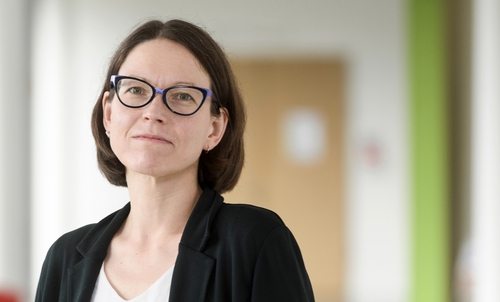Doctoral Research at KIT
Current Position and Field of Research
I’m a full professor, head of the research group “Test, Validation and Analysis of Software-Intensive Systems” and speaker of the KASTEL Mobility Lab. Our research focus are correctness-by-construction engineering, quality assurance methods for complex and variant-rich software systems, and quantum software engineering.
What excites you about your work and research at KIT?
At KIT, the combination of university and Helmholtz research offers unique opportunities for interdisciplinary research. The computer science department, particularly in the area of software engineering and formal methods, as well as the cybersecurity research at KASTEL provide the chance to work with wonderful colleagues on innovative topics. In the KASTEL Mobility Lab, we develop application-oriented solutions in order to make future mobility more secure.
Why did you choose an academic career?
I love working in science because I have the freedom to pursue topics of my interest and solve problems that I consider challenging and relevant. For me, it is particularly satisfying to see our solutions being translated into practice and, thus, contributing to scientific, societal and economic progress.
What do I need to pursue doctoral research at KIT?
Doctoral researchers have to be curious, both in discovering new things and in becoming acquainted with new topics. They should have talent for abstract and structured ways of thinking and for computer science methods in general. Because solving scientific problems often requires perseverance, doctoral researchers should not easily be disheartened by things not going according to plan immediately.
Working on the doctorate allows for personal development in different areas: first, technically because they are provided with the freedom and sufficient time to deal extensively with a particular technical topic; second, doctoral researchers profit from the need to organize their work autonomously, from them taking responsibility for advising and supervising students and from working together with different international partners from science, industry, and society.
How is the working environment at the institute?
The atmosphere in my group is best described as family-like. Science knows no hierarchy, but creative exchange of ideas among equals. We all work hard and advance our projects individually. Equally importantly, we celebrate our successes together and support each other if things are not going in our way. It is particularly important to me to be open to the needs and wishes of my doctoral researchers.
What kind of support do you seek?
We are always looking for excellent researchers! In particular, we are looking for talented and curious young people interested in working with our dynamic and diverse team on challenging scientific questions of today and tomorrow.
Prof. Dr. Ina Schaefer
Test, Validation, and Analysis of Software-Intensive Systems

